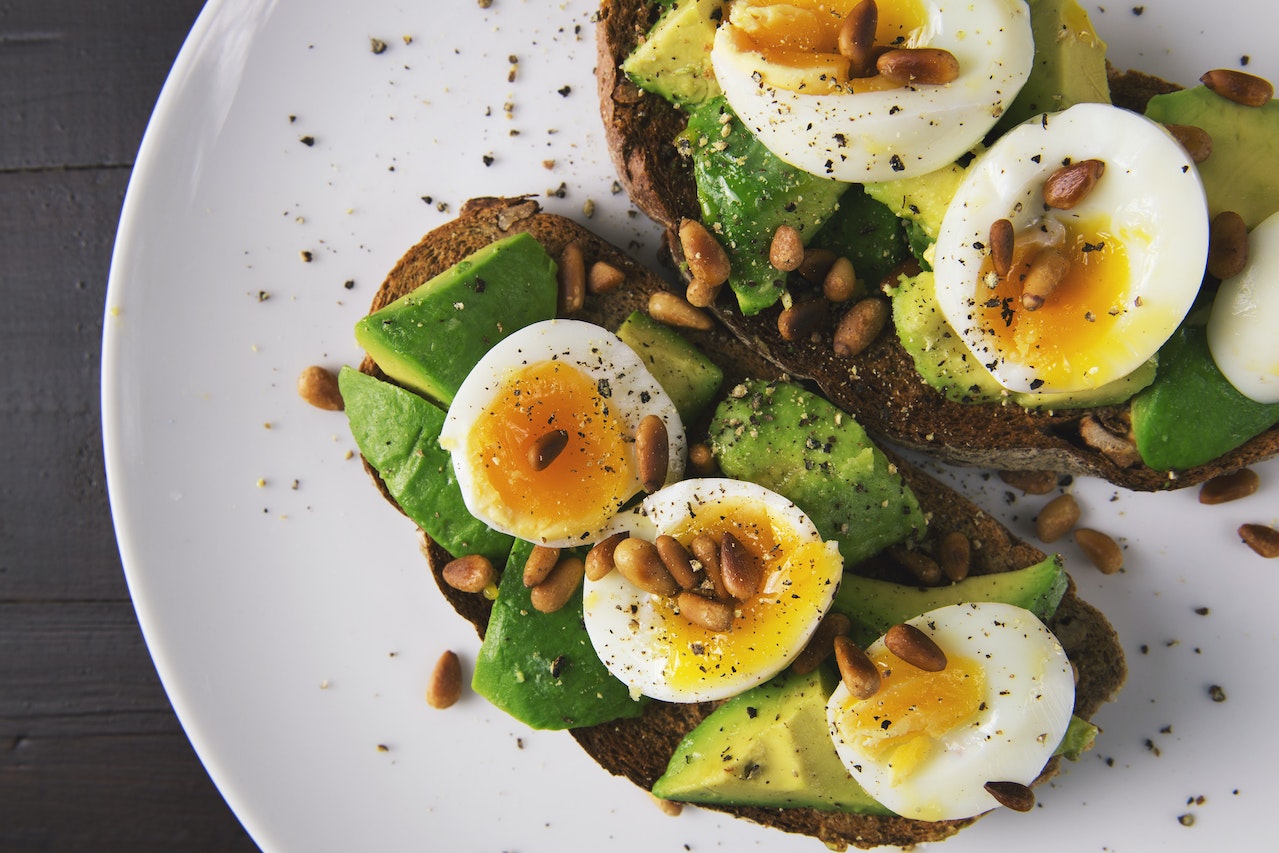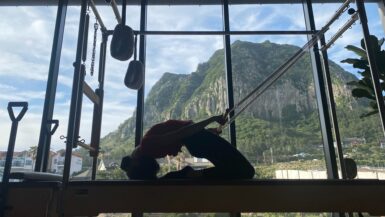For many hikers and trail runners, proper nutrition is essential for performing at their best. Eating the right foods and drinking adequate fluids help provide the energy and nutrition needed to power through a long day on the trail. Without proper nutrition, avoiding fatigue is complex, which can lead to hazardous situations and poor performance. This article explains the basics of good food for hikers and trail runners and provides tips on what to eat and drink when to eat and drink, and how to avoid common nutrition pitfalls.
Nutrition for Hiking and Trail Running
Proper hydration is essential when preparing for and performing at your best on the trail. Not only do you need to drink plenty of water throughout the day, but you should also drink electrolyte drinks and other hydrating fluids. This helps to keep your body regulated and prevents dehydration. Consider packing an electrolyte sports drink during your hikes and trail runs to ensure proper hydration. Before heading out, make sure you know where you will be able to refill your water bottles so that you are never without water.
Fueling Your Body with the Right Nutrients
To get the most out of your performance on the trail, fueling your body with the proper nutrients is essential. Choose nutrient-dense foods that are high in protein and healthy carbohydrates. For snacks, healthy fruit and nut-based options are great for providing your body with energy for longer hikes and runs. Additionally, it is crucial to keep your body fueled throughout the activity. Bring snacks that are easy to carry and can be eaten throughout the day.
Pacing Yourself for Optimal Performance
It’s important to pace yourself when hiking or trail running. If you push yourself too hard initially, you may feel tired toward the trial’s end. Start slowly and build your pace as you feel more comfortable. This will help ensure you can maintain a steady pace throughout the hike or run. Additionally, make sure to take breaks when needed. Taking a break can help refuel your body physically and mentally.
General Nutrition Tips for Trail Performance
To maximize your performance on the trail, here are a few general nutrition tips to keep in mind:
- Eat a healthy, balanced meal before you hit the trail to ensure your body has adequate fuel.
- Bring simple and easy snacks that can be eaten on the go.
- Drink plenty of water and electrolyte drinks throughout the day.
- Be mindful of how your body feels and take breaks when needed.
- Stay fueled throughout the activity with nutritious snacks.
Following these nutrition tips ensures that you are performing at your best while out on the trail. Eating the right foods and staying hydrated will help keep you energized, alert, and ready to tackle any trail.
Foods to Increase Energy
Eating nutritious snacks while hiking is essential to staying energized and performing at your best on the trail. It’s important to take along a variety of snacks that are not only tasty but also provide the essential nutrients, vitamins, and minerals your body needs to stay healthy and energized. Here are some top foods to include in your trail snacks to help fuel your scouting adventures.
Whole Grains for Complex Carbohydrates
Whole grains are an excellent source of complex carbohydrates, which boost the body’s energy. Entire grain choices like oatmeal, quinoa, popcorn, and whole wheat bread are great energy-boosting snacks. These snacks will keep you energized, even when the trail gets tough.
Fruits for Vitamins and Fiber
Fruits are packed with vitamins and minerals that your body needs to stay energized. They are also a great source of natural sugars and fiber, which can help keep your energy levels stable. Some great on-the-go fruits are bananas, apples, and oranges. Dried fruits like raisins, cranberries, or apricots are also great trail snacks.
Nuts for Healthy Fats
Nuts are a great source of healthy fats and proteins and can provide a much-needed energy boost on the trail. Nuts like almonds, walnuts, and pistachios are packed with essential vitamins, minerals, and healthy fats. These snacks are easy to pack and carry on the trail.
Energy Bars for a Quick Boost
Energy bars are a great quick snack that can boost your energy. Look for bars with natural ingredients like oats, nuts, and fruits. Make sure to choose bars with low sugar content and plenty of healthy nutrients.
Eating a balanced snack of whole grains, fruits, nuts, and energy bars while on the trail can help you stay energized and perform at your best. Snacks full of vitamins and minerals, complex carbohydrates, and healthy fats are a great way to fuel your scouting adventures.
Hydrating on the Trail
Staying hydrated while on the trail is essential to perform at your best. Proper hydration helps maintain a healthy electrolyte balance, keeps your body temperature regulated, and prevents fatigue. It also helps to boost your energy levels and reduce the risk of muscle cramps and other injuries.
How Much Water Should I Drink?
How much water you need to drink depends on several factors, such as your fitness level, activity level, and environment. Generally, healthy adults should aim for eight to ten 8-ounce glasses of water daily, but more may be needed when spending time on the trail.
Tips for Staying Hydrated on the Trail
Keep a close eye on your hydration levels when out on the trail. Here are some tips to ensure you stay properly hydrated:
- Carry a Water Bottle: Make sure to bring along a water bottle or other water container with you while you’re on the trail and top it up regularly.
- Drink Before You Feel Thirsty: Thirst is a sign that you’ve already become dehydrated, so stay ahead of thirst and start regularly drinking as soon as you start your hike.
- Eat High-Water Content Foods: Eating fruits and vegetables that are high in water content, such as cucumbers and watermelon, is a great way to stay hydrated.
- Check for Clear Urine: Urine should be light yellow in color. If it is darker, it can signify that you need more water.
- Drink More in Hot Conditions: It’s important to drink enough water in hot or humid conditions, as you may need even more fluids to stay hydrated.
- Replenish Electrolytes: For strenuous activities, it’s important to replenish electrolytes, minerals that are lost when you sweat.
Signs of Dehydration
It’s essential to recognize the signs of dehydration, which include thirst, headaches, fatigue, dizziness, dry mouth and lips, and dark urine. If you notice any of these signs, take a break and drink some water.
In conclusion, staying hydrated while on the trail is essential to performing at your best. Follow the tips above and watch for the signs of dehydration.
Importance of Pre- and Post-Trail Nutrition
For athletes, proper nutrition is essential for achieving peak performance on the trail, and pre-and post-trail nutrition is crucial to pay attention to. Eating suitable foods before and after a trail run or bike ride ensures that you are properly fueled for the activity and that your body is also adequately recovering afterward. Here, we will discuss the importance of pre-and post-trail nutrition for better performance on the trail.
Pre-Trail Nutrition
Eating suitable foods before a trail run or bike ride is essential to ensure that your body is sufficiently fueled and energized. Carbohydrates such as whole grain cereals, oatmeal, bagels, and fruits are great options for pre-trail nutrition, as they provide a slow release of energy. Additionally, proteins such as lean meats and dairy can provide your body with essential nutrients for energy and muscle repair. Eating a healthy snack such as a banana or energy bar about an hour or two before beginning the activity will ensure you have the energy you need to make it through the entire session.
Post-Trail Nutrition
Post-trail nutrition is vital to provide your body with the necessary nutrients to repair and recover from the activity. Eating foods high in proteins and carbohydrates is essential for post-trail nutrition, as they provide your body with the energy and nutrients it needs to recover quickly. Additionally, replenishing fluids and electrolytes lost through sweat is essential for proper recovery, so drink plenty of water before, during, and after your trail activity. Eating a healthy meal within an hour or two after finishing your workout will help your body recover quicker and prevent any potential injuries.
Nutrition for Optimal Trail Performance
To ensure that you are performing at your best on the trail, paying attention to your pre- and post-run nutrition is essential. Eating suitable foods before and after your activity will ensure that you have enough energy for an entire, successful session and will also help your body recover and repair from the action. You can optimize your performance on the trail and experience improved results with proper nutrition.
Strategies for Proper Nutrition on the Trail
Proper nutrition for performing at your best on the trails starts with preparation. Before embarking on a track, it is important to plan meals and snacks that balance proteins, fats, and carbohydrates. The correct trail nutrition type is essential for sustaining energy and preventing dehydration. Hydration should also be considered, with water available at regular intervals.
Types of Trail Food to Consider
When packing trail food for a hike, it is ideal to select nutrient-dense, lightweight, and portable items. Planning meals and snacks with fresh fruits, vegetables, nuts, seeds, and high-fiber carbohydrates such as whole-grain bread or crackers will help maintain energy on the trail. Energy bars and sports snacks are also convenient options that can be consumed while moving.
Know When to Eat
It is essential to monitor energy levels during a hike and make sure to eat when feeling hungry. Eating a healthy meal or snack on the trail immediately after a strenuous hike or workout boosts energy levels and helps refuel depleted stores in the body. Waiting too long to refuel can result in a decrease in performance. Eating a combination of macronutrients at regular intervals can help provide sustained energy and keep a hiker going throughout the trail.
Strategies for Proper Nutrition on the Trail
To ensure proper nutrition is maintained on the trail, it is crucial to monitor how much food is consumed and the timing of those meals and snacks. When packing trail food, choose nutrient-dense snacks that are lightweight and portable. Consuming meals and snacks at regular intervals and immediately following a hard workout can help provide sustained energy on the trail. Drinking plenty of water throughout the hike and opting for fresh fruits and vegetables are other strategies for proper trail nutrition.
Eat the Right Foods to Maximize Performance
A good nutrition plan is essential for performing at your best while on the trail. Eating the right foods and staying hydrated will help you stay energized, focused, and alert. Carbohydrates are the primary energy source for endurance activities, so it is essential to include them in your pre-trail meals. For example, eating a meal of oatmeal, eggs, and a banana will provide carbohydrates, protein, and other essential nutrients. It is also important to stay hydrated by drinking plenty of fluids, and carrying food on your adventure can help your body replace lost energy. Eating a balance of healthy carbohydrates, proteins, and fats and staying hydrated will help hikers perform their best on the trail.






Leave a reply